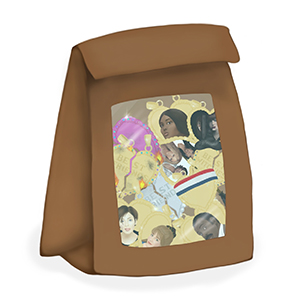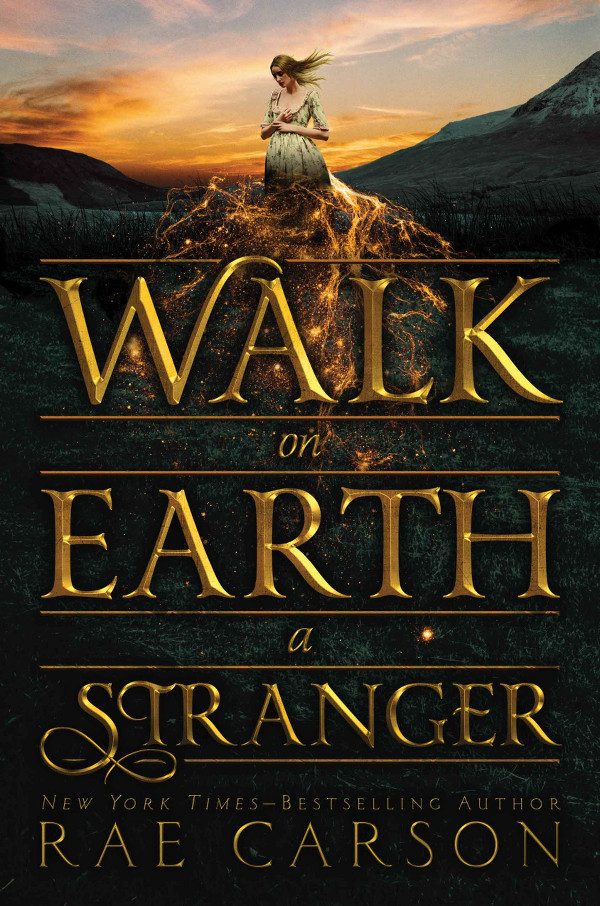
About the Book
-
Author:
- Rita Williams-Garcia
- Genre:
- Historical Fiction
Cover Story: What Makes a Man
BFF Charm: Mixed Bag
Talky Talk: Slice of Life (on a Louisiana Plantation in the 1860s)
Bonus Factor: LGBTQ+
Anti-Bonus Factor: Realities of Life (on a Louisiana Plantation in the 1860s)
Relationship Status: Unsettled
Content Warning: A Sitting in St. James is filled with the realities of life on a plantation while slavery was legal—harsh realities like racism, classism, sexism, rape, physical abuse, brutality, racist slurs, and more.
Cover Story: What Makes a Man
The fact that this cover shows a vision of plantation life, formed into the shape of a person, is a really poignant image. It takes a minute to make it all come together—and I totally thought the shape was of a man at first, but looking more closely, I see some dangly earrings—but give it a long glance and it really hits home. (It also has a bit of an Annihilation vibe, but that’s not what you’re supposed to take away from it.)
The Deal:
Madame Sylvie Guilbert has been running the plantation Le Petite Cottage for more than half a decade. And now that she’s nearing her golden years, she wants to keep up appearances with a professionally painted portrait of herself. But hers isn’t the only story on the plantation, and her family’s glowing reputation is merely gilt.
BFF Charm: Mixed Bag

This charm is actually a little too nice for how I feel about most of the characters in this book. For the few that I liked, the rest I absolutely abhorred. Even when they seemed decent, they did something awful only a few paragraphs later and revealed their true nature. And even the ones I liked I don’t think I could be real friends with. Our lives are just too, too different.
Swoonworthy Scale: -50
See the Content Warning above. Even though there were a couple of decent relationships in the book, the rest of the “couplings” put a severe damper on any amount of swoon there could have otherwise been.
Talky Talk: Slice of Life (on a Louisiana Plantation in the 1860s)
A Sitting in St. James is an unflinching, unflattering, uncomfortable look at what life was like for Louisiana planters of the 1860s—themselves, their families, their friends, and their slaves, who were sometimes also one or more of the above. I struggled with the language of the era and the way the Guilbert family would shift from likable folk to hateful monsters in the same paragraph. There were many times I wanted to put the book down (specifically the numerous instances of rape or the treatment of female slaves as little better than cattle), but I kept reading, knowing that the discomfort I faced was a laughable shadow when compared to the realities of the day.
Truth be told, not much—in the way of plot—happens in the book. (In fact, it reminded me of this classic tweet/review of Pride and Prejudice.) But there’s a power behind the simple storylines that drive home the book’s extremely important information. In A Sitting in St. James, Williams has crafted an honest look at the horrors of the era that doesn’t treat it like horrors, instead focusing on the people who lived it. She never makes excuses for their behavior, but she also doesn’t exactly condemn it outright, leaving it up to the reader to do that for themselves.
Bonus Factor: LGBTQ+

I was surprised to find multiple characters who, although it wasn’t expressly stated (it being the 1860s and all), fit on the LGBTQ+ spectrum. Gay or bisexual men, a possible trans character, and a possible lesbian and/or asexual character. I might have just been reading into the relationships Wiliams-Garcia created, but they were certainly coded in a way that made it pretty easy to assume. (I mean this all in a good way; it’s not like queer folk just appeared out of thin air in the late 1900s!)
Anti-Bonus Factor: Realities of Life (on a Louisiana Plantation in the 1860s)

I’ve already written a bunch about the horrors of this novel. The worst part about it is that it all actually happened. Perhaps not exactly like Williams-Garcia wrote, since this is a work of fiction, but very similarly, time and time and time again.
Relationship Status: Unsettled
I had a hard time reading you, Book. At times, I wanted to put you down. But I told myself that it was more important to learn your message, and take it to heart, than it was to feel comfortable. I’m glad I kept on reading. You’ll stick with me for a long time to come.
Literary Matchmaking

Rae Carson’s Gold Seer Trilogy also deals with racism and slavery, but in the Wild West, rather than the Louisiana Purchase.

Although Justina Ireland’s Dread Nation takes place post-Civil War, a lot of the same themes are present (albeit with zombies in the mix).

And, Kara Lee Corthron’s Daughters of Jubilation takes place a hundred years later, but—sadly—shows how slow change happened (or didn’t).
FTC Full Disclosure: I received a copy of this book from Quill Tree Books, but got neither a private dance party with Tom Hiddleston nor money in exchange for this review. A Sitting in St. James is available now.